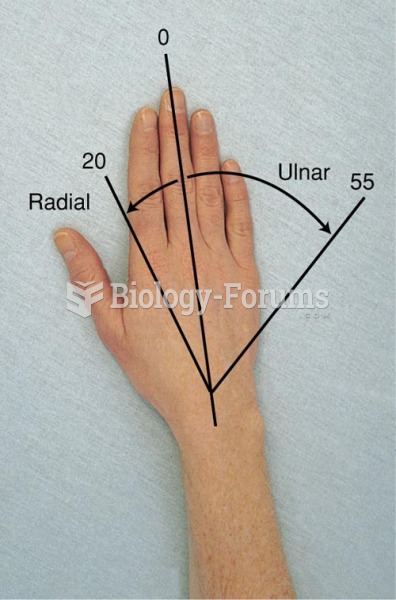|
|
|
People who have myopia, or nearsightedness, are not able to see objects at a distance but only up close. It occurs when the cornea is either curved too steeply, the eye is too long, or both. This condition is progressive and worsens with time. More than 100 million people in the United States are nearsighted, but only 20% of those are born with the condition. Diet, eye exercise, drug therapy, and corrective lenses can all help manage nearsightedness.
Human kidneys will clean about 1 million gallons of blood in an average lifetime.
In the United States, an estimated 50 million unnecessary antibiotics are prescribed for viral respiratory infections.
The B-complex vitamins and vitamin C are not stored in the body and must be replaced each day.
In 1835 it was discovered that a disease of silkworms known as muscardine could be transferred from one silkworm to another, and was caused by a fungus.







